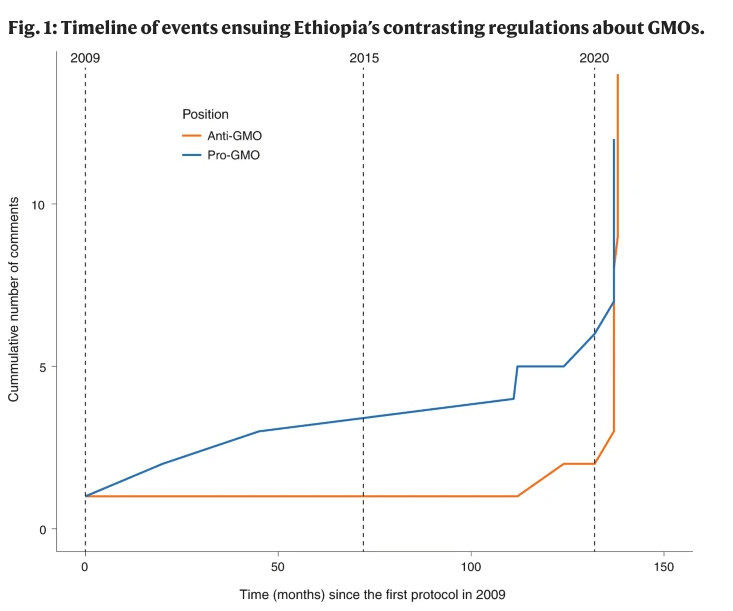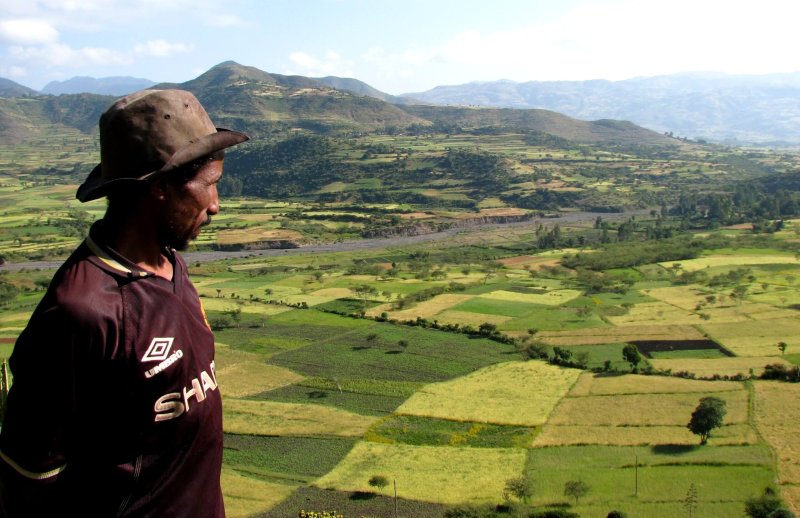I have followed with interest the recent controversy around plantings of transgenic crops in Ethiopia. Until 2015, the country took a vocal stand against genetically modified (GM) crops, underlined by its strict proclamation on biosafety in 2009… Six years later, the country loosened its restrictions in an amended proclamation.
…
In a recent report, the US Department of Agriculture (USDA) recognized Ethiopia’s commitment to implementing the amended protocol. Although debates about gene-modified organisms (GMOs) in Ethiopia started immediately after the first prohibitive proclamation in 2009, they were low-key and mostly pro-GMO (Fig. 1). Severe criticisms against GMOs exploded following USDA’s accolades for Ethiopia’s relaxation of rules.
Anti-GMO efforts may not necessarily force the government to reinstate its strict biosafety regulation of 2009. Nonetheless, campaigns decrying GM crops can influence public perceptions, which in turn can lead to changes in policy, stalling the uptake, implementation and application of biotech products. In addition, misinformation and competing interests inevitably complicate how biotech research fairs in Ethiopia (and elsewhere in Africa).

…. If such campaigns succeed, not only GMOs but also other advances in biotech will face an uphill battle. If, by contrast, Ethiopian scientists and enthusiastic technocrats can rise above the mudslinging, take a pragmatic case-by-case approach to crop approvals and build biosafety infrastructure that accommodates new agricultural technologies, the country can realize its potential as a springboard for the advancement of biotechnology R&D on this continent.































